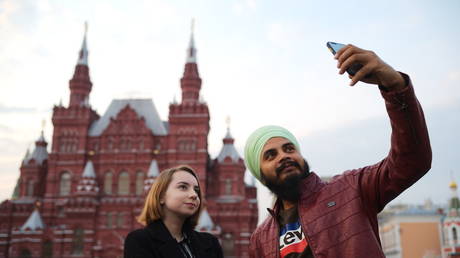How a Free Market Inevitably Produces Dictatorship
by Eric Zuesse, Strategic Culture:
 Who rules the land? A deeper and truer version of this question is: What rules the land? Is it the money (the aristocracy), or is it the people (the public, the residents on that land)? (For the interest of paleoconservatives, the issue of residents’ citizenship will come later here, as “immigrants” instead of as “citizenship”; but our basic focus is not ethnicity/nationality; it’s class: the money, versus the voters; not the natives, versus the foreigners.)
Who rules the land? A deeper and truer version of this question is: What rules the land? Is it the money (the aristocracy), or is it the people (the public, the residents on that land)? (For the interest of paleoconservatives, the issue of residents’ citizenship will come later here, as “immigrants” instead of as “citizenship”; but our basic focus is not ethnicity/nationality; it’s class: the money, versus the voters; not the natives, versus the foreigners.)
In a democracy, the public rule — the people do — and it’s on authentically a one-person-one-vote basis, and anyone who is a resident in that land can easily vote, just like anyone else who lives there, because only the residents there, during the specific time-period of the voting, are the ultimate decision-makers, over that land, and over its laws. This is what a democracy is: it’s one-person-one-vote, and, in the political sense, it’s total equality-of-rights and total equality-of-obligations — real and total equality-by-law: equal rights, and equal obligations, for all residents. A democracy applies the same requirements to everyone.
This does not mean that individuals are equal in their abilities and in their needs, and so it’s not a statement about the economy; it is purely a statement about the government — a political question. The economy is a separate matter, though it’s highly dependent upon the government — the laws that are in place and enforced. Many people confuse these two fields, and mistakenly think that the economy is basic to the government.
So: the economy is dependent upon the government; the government determines the economy, which, in any land, is highly dependent upon the laws that are in place and that are enforced — the government.
That’s only “natural persons” who control a democracy — no collectives of any type, corporate or otherwise, can vote, because, if it were otherwise, it would be an easy way to establish a dictatorship there: persons with the financial means could create any number of “artificial persons” who could vote, or could buy votes (such as by purchasing news-media to slant ‘reality’ selling politicians and political positions to the voters), and this money could produce a country controlled more by dollars, than by owners (i.e., than by actual persons, voters — not by artificial “persons” such as the wealth-collections that are known as corporations). If wealth-collections could vote, that would invite control over the land to be by wealth (the number of dollars) instead of by actual residents (the number of persons). It could even produce control by foreign wealth. Foreigners could end up controlling the country if the number of dollars is a bigger determinant of who rules than is the number of voters.
Obviously, no democracy will allow foreigners to control the land. Imperialism is inconsistent with democracy; any empire is dictatorial, by its very nature. It entails dictatorship over the residents in its colonies, even if not necessarily over the residents in the imperial land that had conquered the colonial area.
Empire is consistent with a free market, but it is inconsistent with democracy. No empire is democratic, because each colony is ruled by non-residents. (If the colony were ruled by its residents, it wouldn’t be a colony, and there wouldn’t be an empire.)
A federation is not an empire. The difference between them is that, whereas in a federation, the right of self-determination of peoples takes precedence over the federation’s interest in maintaining the status-quo; in an empire, there is no such right — an empire is a dictatorship.
The propaganda for a free market is funded very heavily by billionaires such as the Koch brothers and George Soros, because control over countries naturally devolves into control by wealth, instead of into control by people (and certainly not by residents), if a free-market economy exists there. Billionaires do whatever increases their power; and, beyond around $100,000-per-year of income, any additional wealth buys no additional happiness or satisfaction, but only additional status, which, for individuals who are in such brackets, is derived from increases in their power, because, at that stage of wealth, money itself is no longer an object, only status is, and additional status can be derived only from additional power. All of the empirical findings in the social sciences are consistent with this; and, whereas the income-point in most of those studies, beyond which additional dollars produce no additional happiness for the owner, has been $75,000 per year, there has been inflation since those studies were performed, and one might more accurately say today that $100,000-per-year is the income-point beyond which only status is increased by additional income; happiness or satisfaction is not increased by income above that point. This is a statement about nature; it is the reality in which any market — free or otherwise — exists. It is “human nature,” and that’s basic to all of the social sciences which pertain to humans, including political science, and economics.
In economic theory, the phrase that has been traditionally used to refer to this reality, even before recent empirical studies showed the reality to be this way, was “the declining marginal utility of money.” Beyond around $100,000/year, additional “bucks” are for status, not for happiness. Anyone who has no addiction to status, doesn’t care about having more money coming in beyond that amount. Beyond that amount, the additional marginal utility of each dollar received is actually zero. The wealth-addict might cravemore, but it won’t do him-or-her any actual good; it won’t make the person happier. That’s the reality, now proven in numerous empirical studies.
This reality has major political consequences. One is that a country with highly concentrated wealth (the bottom 50% own almost nothing) is serving the addictions of a few, not the needs of the many — and therefore concentrated wealth cannot be sustained in a democracy, but only in a dictatorship: a dictatorship of wealth, where what determines power isn’t the voters but the dollars.
An important philosophical champion of free markets is the libertarian philosopher Hans-Hermann Hoppe. In 2001, Hoppe published his DEMOCRACY: The God that Failed, which was considered a libertarian masterpiece. Hoppe unapologetically argued there that libertarianism and conservatism are one and the same — and that he wanted it, passionately: he hated democracy. Unlike many libertarians, who falsely allege that democracy is impossible without there first being libertarianism (a free market), Hoppe acknowledged and argued for the mutual inconsistency between libertarianism and democracy. Although I don’t share his preference for a rule by the wealth instead of a rule by the residents, and thus he is an ideological opponent — the opposite of a supporter of my own position, as it’s being set forth here (and far more briefly than his tome) — I consider him to be the fullest and most internally consistent libertarian philosopher, and perhaps the most significant libertarian political philosopher in this Century, thus far. Whereas lots of people call themselves “libertarian,” he actually is — fully — that. Of course, some libertarians don’t agree with Hoppe’s view; but, on 30 August 2011, Michael Lind at salon.com headlined “Why Libertarians Apologize for Autocracy: The experience of every democratic nation-state proves that libertarianism is incompatible with democracy,” and he empirically found that Hoppe was correct about this incompatibility.
Hoppe argues not only for an aristocracy, but for a hereditary one, and he even opposes immigration; so, if he were a democrat, at all, then he’d be excluding immigrants from voting. But he’s not even that much of a democrat. And he especially approves of hereditary monarchy. His reason for that preference is traditional libertarianism, which favors the private over the public: “Hereditary monarchies represent the historical example of privately owned governments, and democratic republics that of publicly owned governments.” Libertarianism opposes public ownership, favors private.
Like any philosopher, Hoppe has ignored crucial issues in order to sell his case (after all, it’s a philosophical, not a scientific, case; it is ideological propaganda alleging that libertarianism is good — instead of being anything scientific); and the most interesting thing that he has avoided discussing in it is anti-trust, anti-monopoly, anti-oligopoly — the issues about concentration of power. He ignores those issues. For example, whenever he uses the term “monopoly,” he is referring solely to “government,” never to the economy (he assumes that in a free market there can’t be any oligopolies or monopolies). He is, after all, a crank (a free-market political theorist and therefore someone who implicitly denies that government is basic to an economy, and who assumes the converse, that the government is instead built upon the economy), though he’s an erudite one and thus acceptable to his fellow-scholars. Erudition doesn’t mean, nor necessarily include, being scientific. And the scientific reality is that the political issue isn’t ‘the government’s monopoly on power’, but instead it’s simply any concentrations of power — both monopolies and oligopolies — which unequalize both rights and obligations in the society, such that whereas a few people (the aristocracy) have many rights and few (if any) obligations, most people (the public) have few rights and many obligations. The latter type of society is called a “dictatorship.” The more that it exists, the more that it comes to exist — and, consequently, the less that there can exist democracy.
Read More @ Strategic-Culture.org
Loading...



